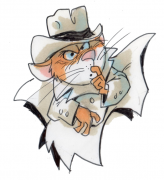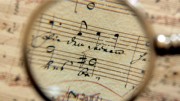Chamber music. In a broad sense “chamber music” is any music suited to a room or small hall, as distinct from music for a large auditorium, as church, operatic, or symphonic music. Practically, the term is most frequently applied to concerted pieces of instrumental music in the sonata form, as string or wood-wind quartets, quintets, etc. See NOTE * after citation.
From Elson’s Pocket Music Dictionary, Oliver Dutson Company, New England, 1909.
* NOTE – Chamber music is not to be confused with chin music – which isn’t music at all. The term “chin music” can mean anything from 1 Excessive jibber jabber, gibble gabble, or idle talk – to 2 A pitch in baseball thrown close to the batter’s face to “brush him back” from the plate. This second definition came into vogue just after WWII. For those interested in etiquette, it is never appropriate to engage in chin music whilst chamber music is being performed.








